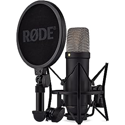How Much Radio DJs/Broadcasters Earn in South East Asia

Radio Broadcasting in Southeast Asia: A Career Guide
Radio broadcasting is a form of mass communication that uses radio waves to transmit audio signals to a large audience. Radio broadcasting can be used for various purposes, such as entertainment, education, news, sports, music, and culture. Radio broadcasting is one of the oldest and most influential media forms in the world, and it still plays a vital role in many regions, especially in the Global South.
Southeast Asia is a diverse and dynamic region that consists of 11 countries: Brunei, Cambodia, Indonesia, Laos, Malaysia, Myanmar, the Philippines, Singapore, Thailand, Timor-Leste, and Vietnam. Southeast Asia has a population of about 655 million people, and a rich and varied cultural heritage. Southeast Asia is also home to many radio broadcasters who produce and deliver radio programs in different languages, formats, genres, and styles.
If you are interested in pursuing a career in radio broadcasting in Southeast Asia, you may wonder what are the highest paying positions, what are the skills and qualifications required, what are the challenges and opportunities in the industry, and what are the benefits and drawbacks of working in radio. In this article, we will try to answer these questions and provide some useful information and tips for aspiring radio broadcasters.
Highest Paying Radio Broadcast Positions
According to various sources123, the highest paying radio broadcast positions in Southeast Asia are:
- Radio News Anchor: A radio news anchor is a person who presents news stories on air. They usually work in a studio and read from a script or teleprompter. They may also conduct interviews with guests or reporters, provide commentary or analysis, and interact with listeners through phone calls or social media. A radio news anchor needs to have excellent communication and presentation skills, a clear and pleasant voice, a good command of the language(s) they broadcast in, and a broad knowledge of current affairs and relevant topics. A radio news anchor may earn between $1,000 to $5,000 per month depending on their experience, reputation, and market size.
- Radio DJ: A radio DJ is a person who plays music on air. They usually work in a studio and use various equipment such as turntables, mixers, computers, and microphones. They may also introduce songs or artists, provide information or trivia, take requests from listeners, host contests or giveaways, and promote events or products. A radio DJ needs to have a passion for music and a good taste in selecting songs that suit the audience’s preferences and moods. They also need to have a lively and engaging personality, a sense of humor, a creative flair, and an ability to improvise and adapt to different situations. A radio DJ may earn between $500 to $3,000 per month depending on their popularity, skills, and market size.
- Radio Field Reporter: A radio field reporter is a person who covers news stories on location. They usually work outside the studio and use portable equipment such as recorders, cameras, phones, and laptops. They may also use satellite or internet connections to transmit their reports live or recorded. They may cover various topics such as politics, business, sports, culture, or human interest. A radio field reporter needs to have strong journalistic skills such as researching, interviewing, writing, editing, and fact-checking. They also need to have a curiosity and an interest in finding and telling stories that matter to the listeners. They also need to have a courage and an integrity to report the truth without fear or favor. A radio field reporter may earn between $800 to $4,000 per month depending on their experience, quality of work, and market size.
Radio Journalism as a Profession
Radio journalism is a branch of journalism that focuses on producing and delivering news stories for radio audiences. Radio journalism can be seen as both an art and a science that requires creativity, critical thinking, and technical skills.
Radio journalism can be a rewarding profession for those who love storytelling, learning, and communicating with people. Radio journalism can also be a challenging profession that involves long hours, tight deadlines, and high pressure. Radio journalism can also be a risky profession that exposes journalists to dangers such as violence, censorship, or harassment.
If you want to pursue radio journalism as a profession, you need to have some basic qualifications such as:
- A bachelor’s degree in journalism, communication, or related fields.
- A diploma or certificate in radio broadcasting, production, or engineering.
- A portfolio or demo reel of your previous work or projects.
- A resume or CV that highlights your education, experience, skills, and achievements.
You also need to have some essential skills such as:
- Writing: You need to be able to write clear, concise, and accurate scripts for your reports or programs. You also need to be able to write catchy headlines, teasers, and summaries that attract listeners’ attention.
- Speaking: You need to be able to speak confidently, fluently, and articulately on air. You also need to be able to modulate your voice, tone, and pace to suit the mood and style of your reports or programs.
- Listening: You need to be able to listen attentively and actively to your sources, guests, colleagues, and listeners. You also need to be able to ask relevant and probing questions that elicit useful and interesting information or opinions.
- Researching: You need to be able to research thoroughly and efficiently on various topics and sources. You also need to be able to verify and cross-check the facts and data that you collect and use.
- Editing: You need to be able to edit your own or others’ work for clarity, accuracy, and quality. You also need to be able to use various software and tools for audio editing, mixing, and enhancing.
- Reporting: You need to be able to report objectively and ethically on various issues and events that affect the public interest. You also need to be able to balance different perspectives and viewpoints without bias or prejudice.
Average Salary of a Radio Broadcaster in Southeast Asia
The average salary of a radio broadcaster in Southeast Asia varies depending on several factors such as:
- The country or market where they work: Different countries or markets have different levels of economic development, media freedom, and audience size that affect the demand and supply of radio broadcasters and their income potential.
- The position or role they play: Different positions or roles have different levels of responsibility, authority, and influence that affect the recognition and reward of radio broadcasters and their career prospects.
- The experience or expertise they have: Different levels of experience or expertise have different degrees of skill, knowledge, and reputation that affect the performance and quality of radio broadcasters and their professional development.
According to some estimates123, the average salary of a radio broadcaster in Southeast Asia ranges from $500 to $5,000 per month. However, this is only a rough approximation that may not reflect the actual situation or situation of individual radio broadcasters.
Radio Broadcasting as a Career in Southeast Asia
Radio broadcasting can be a great career choice for those who are passionate about radio and want to make a positive impact on society. Radio broadcasting can offer many benefits such as:
- Creativity: Radio broadcasting allows you to express your creativity and originality through your voice, music, or sound effects. You can also experiment with different formats, genres, or styles that suit your interests and talents.
- Learning: Radio broadcasting enables you to learn new things every day from your sources, guests, colleagues, or listeners. You can also expand your knowledge and perspectives on various topics and issues that matter to you and your audience.
- Communication: Radio broadcasting helps you improve your communication and presentation skills through your writing, speaking, and listening. You can also build your network and relationships with people from different backgrounds, cultures, or professions.
- Influence: Radio broadcasting gives you the opportunity to influence public opinion and behavior through your news, information, or entertainment. You can also raise awareness and advocacy on important causes or issues that you care about.
However, radio broadcasting can also pose some challenges such as:
- Competition: Radio broadcasting faces intense competition from other media forms such as television, internet, or social media that offer more visual, interactive, or personalized content. You have to constantly innovate and adapt to keep up with the changing preferences and expectations of your audience.
- Regulation: Radio broadcasting is subject to various laws, rules, or regulations that govern the ownership, operation, or content of radio stations. You have to comply with these legal or ethical standards that may limit your freedom or creativity.
- Risk: Radio broadcasting exposes you to various risks such as technical glitches, human errors, or external threats that may affect your work quality, safety, or security. You have to be prepared and resilient to deal with these unforeseen or unavoidable situations.
Conclusion
Radio broadcasting is a fascinating and fulfilling career that can offer many rewards and challenges. If you are interested in pursuing radio broadcasting in Southeast Asia, you need to have some qualifications, skills, and passion for radio. You also need to be aware of the opportunities and difficulties in the industry. Radio broadcasting is not an easy career, but it can be a rewarding one if you are willing to work hard, learn fast, and have fun.









